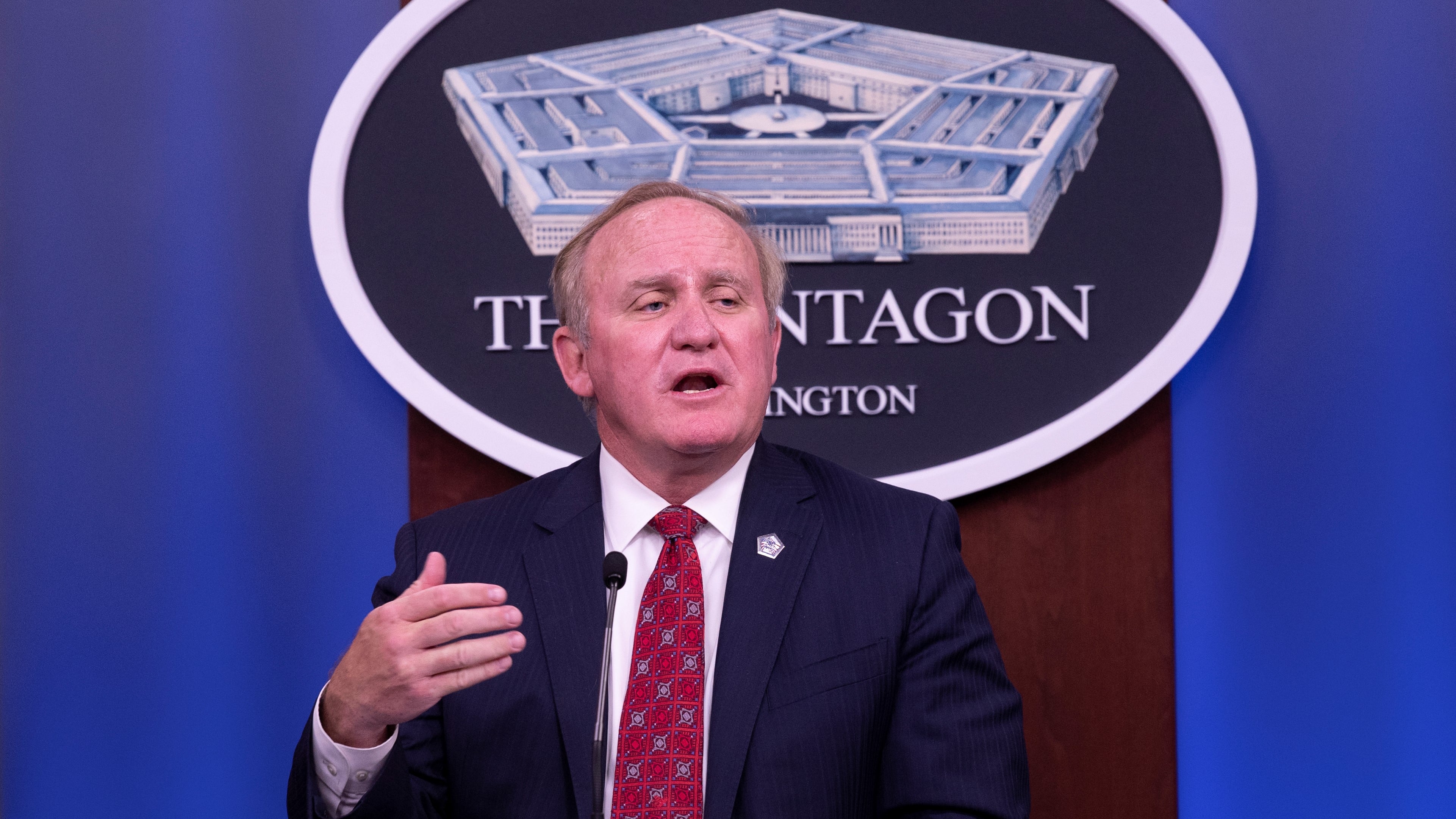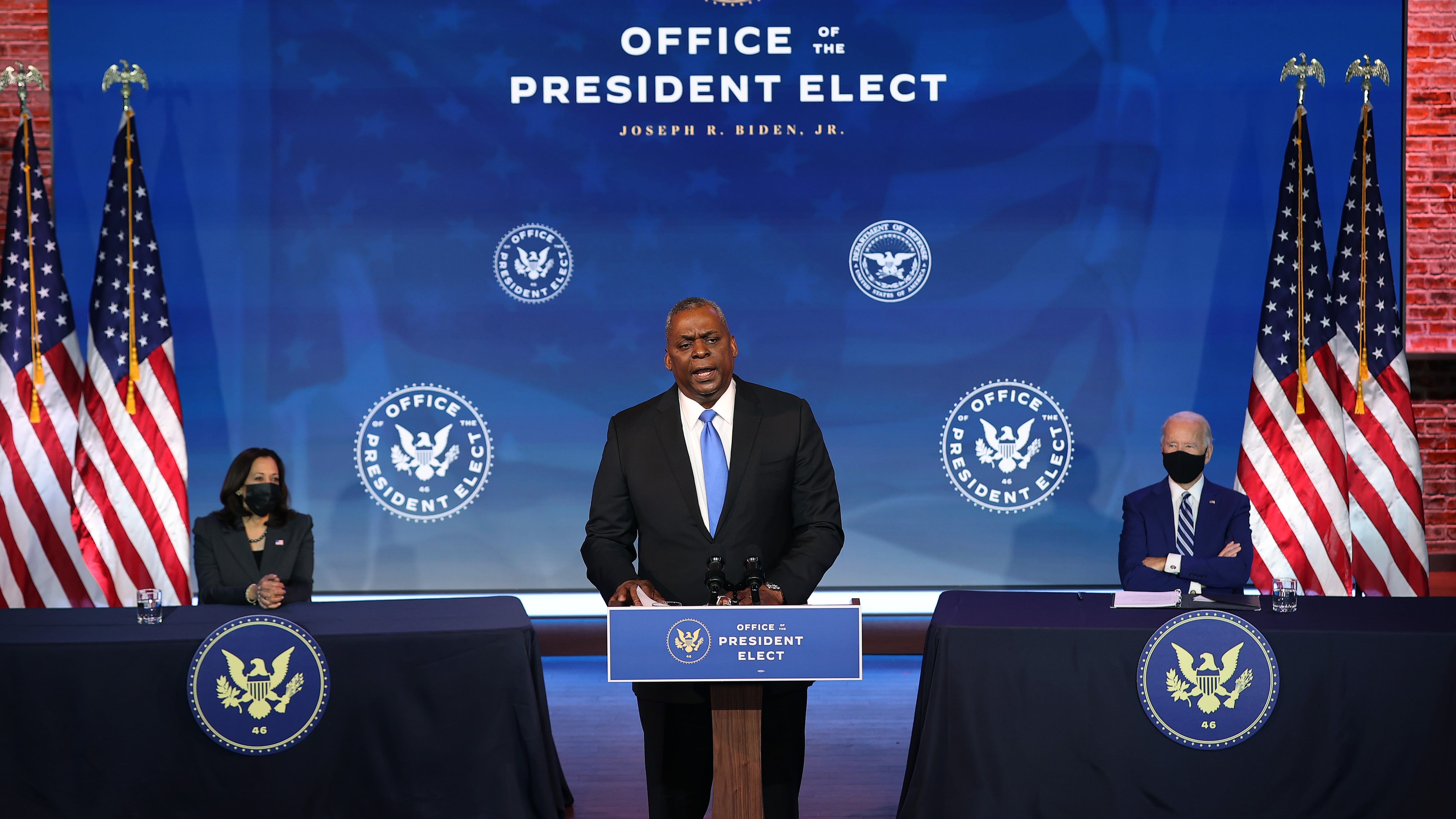WASHINGTON — The U.S. acting defense secretary has canceled planned meetings between Defense Department officials and the Biden transition team.
It’s a move the department is categorizing as a temporary delay rather than a wholesale blockade of the incoming administration. But a spokesman for the Biden team said the transition officials are “concerned” about “an abrupt halt to the already limited cooperation” in the Department of Defense, and he accused the Pentagon of issuing a false statement about an agreed upon pause in work.
The halt comes days after a major hack of government agencies, including the Pentagon, has left the department scrambling to understand the potential damage, much of which will be dealt with by the incoming administration.
Axios first reported Friday morning that acting Defense Secretary Christopher Miller, who was installed at the Pentagon days after the Nov. 3 election, had ordered scheduled meetings to be canceled. After the initial report, the Pentagon pushed back, saying the pause was a rescheduling of meetings for Friday due to “competing priorities” for officials, and that meetings would open up again in the new year, following what was described as a planned two-week Christmas break.
RELATED

“The Department of Defense will continue to provide all required support to the Agency Review Team (ART) to keep our nation and her citizens safe,” Miller said in a statement, which noted that the 20 interviews that were scheduled for Friday are being rescheduled for after Jan. 1. “At no time has the Department cancelled or declined any interview.”
“After the mutually-agreed upon holiday pause, which begins tomorrow, we will continue with the transition and rescheduled meetings from today,” the statement added. “Again, I remain committed to a full and transparent transition — this is what our nation expects and the DoD will deliver AS IT ALWAYS HAS.”
However, at a Friday briefing, Biden transition spokespeople Yohannes Abraham and Jen Psaki denied there was an agreed upon holiday pause and called for the Pentagon to immediately restart the discussions.
Asked if the Biden team was accusing Miller of lying, Psaki said: “I don’t think we need to communicate that. I think you can make your own judgment about the information we provided.”
“It’s not in our interest to provide inaccurate information about the status of our engagements,” she added. “Our preference is certainly for things to proceed as usual. That is our hope.”
Abraham added that political appointees at the department have been particularly “recalcitrant” in sharing information when compared to other government agencies, and that the “abrupt halt to the already limited cooperation” needed to be reversed immediately — particularly in the aftermath of the SolarWinds hack that is believed to have exposed America’s national security agencies for months.
RELATED

Pentagon observers have been carefully watching the transition process at the department following a wave of firings of top officials — including Defense Secretary Mark Esper — that was followed by a group of Trump loyalists installed in the department.
Miller’s move was met with criticism from outside experts, who noted that an orderly transition at the Pentagon is vital for American security interests.
Kori Schake, the head of defense studies for the American Enterprise Institute, called the delay in meetings “both disgraceful and actually dangerous, especially given the ongoing cyber incursions by a hostile foreign power — something the Trump administration’s decimation of cyber talent within civilian agencies of the government enabled.
“This decision is what the acting secretary is going to be remembered for, and it’s a terrible legacy for a short tenure,” said Schake, a former national security official in the Bush administration.
Loren DeJonge Schulman, an adjunct senior fellow with the Center for a New American Security, said the reports are “very concerning and not at all consistent with the way transitions should be run.”
“I helped coordinate the 2008 transition inside the Department of Defense, and understand how the intensity and number of requests from transition teams can be overwhelming, particularly over the holiday season,” she said. “But facilitating the new administration’s stewardship of the Department of Defense isn’t optional. National security does not take a break.”
Aaron Mehta was deputy editor and senior Pentagon correspondent for Defense News, covering policy, strategy and acquisition at the highest levels of the Defense Department and its international partners.







